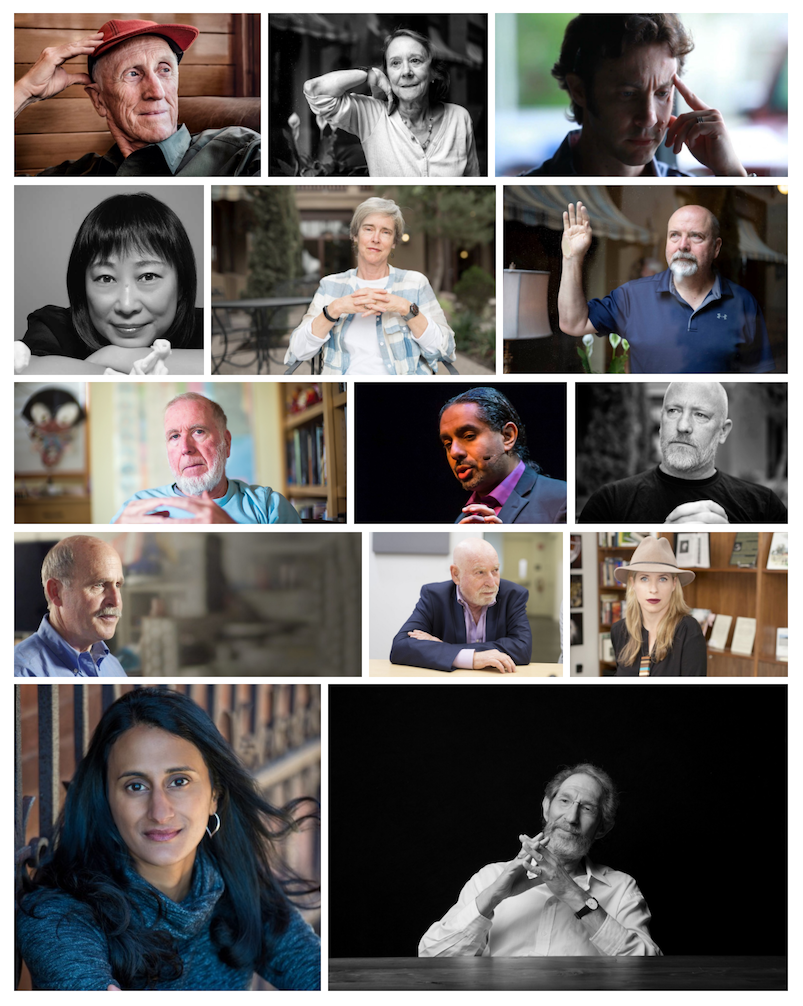
On April 14th, 02020, The Long Now Foundation convened a Long Conversation¹ featuring members of our board and invited speakers. Over almost five hours of spirited discussion, participants reflected on the current moment, how it fits into our deeper future, and how we can address threats to civilization that are rare but ultimately predictable. The following are excerpts from the conversation, edited and condensed for clarity.
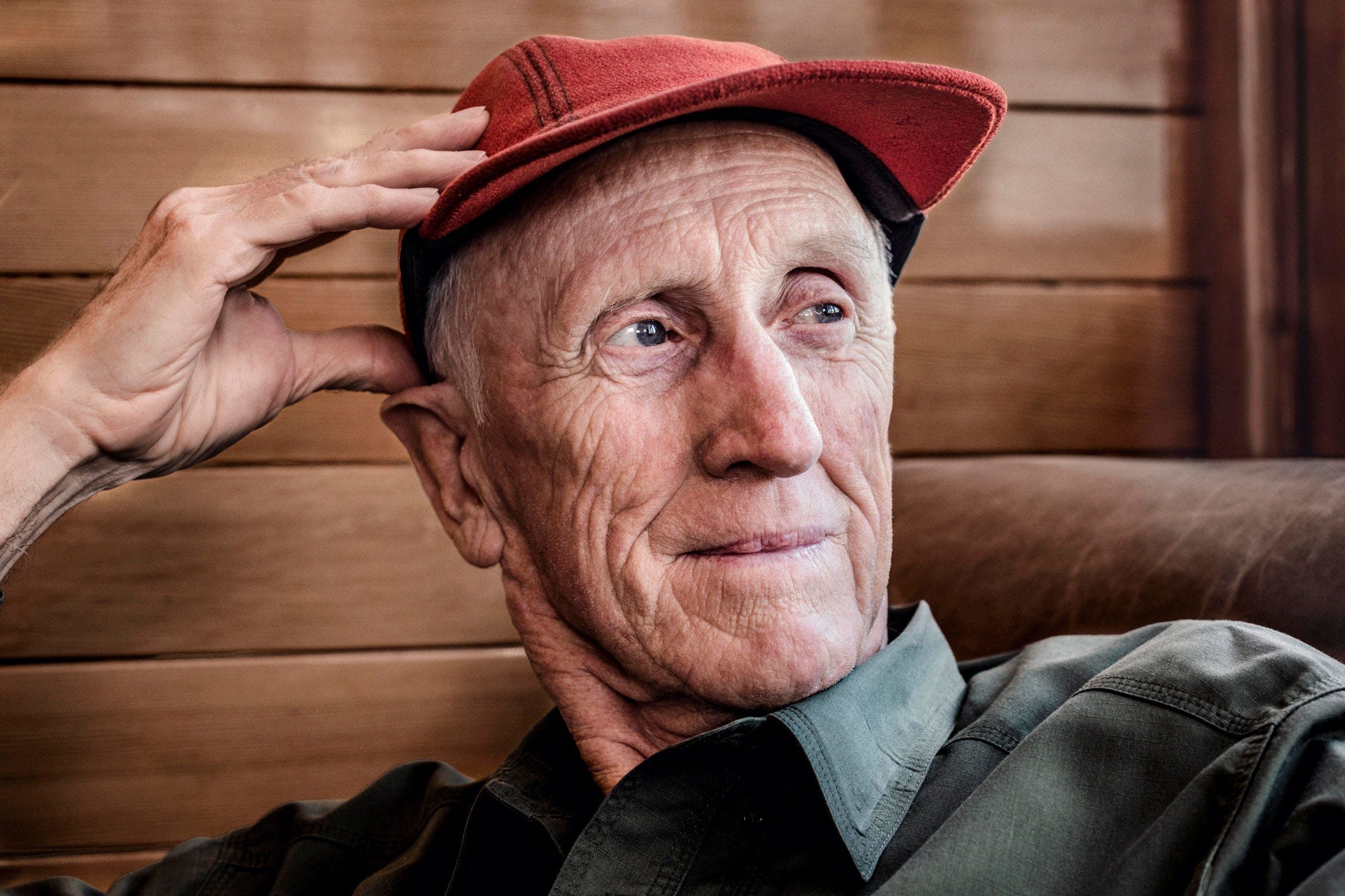
The Pandemic is Practice for Climate Change
Stewart Brand
I see the pandemic as practice for dealing with a much tougher problem, and one that has a different timescale, which is climate change. And this is where Long Now comes in, where now, after this — and it will sort out, it’ll take a lot longer to sort out than people think, but some aspects are already sorting out faster than people expected. As this thing sorts out and people arise and say: Well, that was weird and terrible. And we lost so and so, and so and so, and so and so, and so we grieve. But it looks like we’re coming through it. Humans in a sense caused it by making it so that bat viruses could get into humans more easily, and then connecting in a way that the virus could get to everybody. But also humans are able to solve it.
Well, all of that is almost perfectly mapped onto climate change, only with a different timescale. In a sense everybody’s causing it: by being part of a civilization, running it at a much higher metabolic rate, using that much more energy driven by fossil fuels, which then screwed up the atmosphere enough to screw up the climate enough to where it became a global problem caused by basically the global activity of everybody. And it’s going to engage global solutions.
Probably it’ll be innovators in cities communicating with other innovators in other cities who will come up with the needed set of solutions to emerge, and to get the economy back on its legs, much later than people want. But nevertheless, it will get back, and then we’ll say, “Okay, well what do you got next?” Because there’ll now be this point of reference. And it’ll be like, “If we can put a man on the moon, we should be able to blah, blah, blah.” Well, if we can solve the coronavirus, and stop a plague that affected everybody, we should be able to do the same damn thing for climate.
Watch Stewart Brand’s conversation with Geoffrey West.
Watch Stewart Brand’s conversation with Alexander Rose.

The Impact of the Pandemic on Children’s Ability to Think Long-term
Esther Dyson
We are not building resilience into the population. I love the Long Now; I’m on the board. But at the same time we’re pretty intellectual. Thinking long-term is psychological. It’s what you learn right at the beginning. It’s not just an intellectual, “Oh gee, I’m going to be a long-term thinker. I’m going to read three books and understand how to do it.” It’s something that goes deep back into your past.
You know the marshmallow test, the famous Stanford test where you took a two-year-old and you said, “Okay, here’s a marshmallow. You sit here, the researcher is going to come back in 10 minutes, maybe 15 and if you haven’t eaten the first marshmallow you get a second one.” And then they studied these kids years later. And the ones who waited, who were able to have delayed gratification, were more successful in just about every way you can count. Educational achievement, income, whether they had a job at all, et cetera.
But the kids weren’t just sort of randomly, long-term or short-term. The ones that felt secure and who trusted their mother, who trusted — the kid’s not stupid; if he’s been living in a place where if they give you a marshmallow, grab it because you can’t trust what they say.
We’re raising a generation and a large population of people who don’t trust anybody and so they are going to grab—they’re going to think short-term. And the thing that scares me right now is how many kids are going to go through, whether it’s two weeks, two months, two years of living in these kinds of circumstances and having the kind of trauma that is going to make you into such a short-term thinker that you’re constantly on alert. You’re always fighting the current battle rather than thinking long-term. People need to be psychologically as well as intellectually ready to do that.
Watch Esther Dyson’s conversation with Peter Schwartz.
Watch Esther Dyson’s conversation with Ramez Naam.
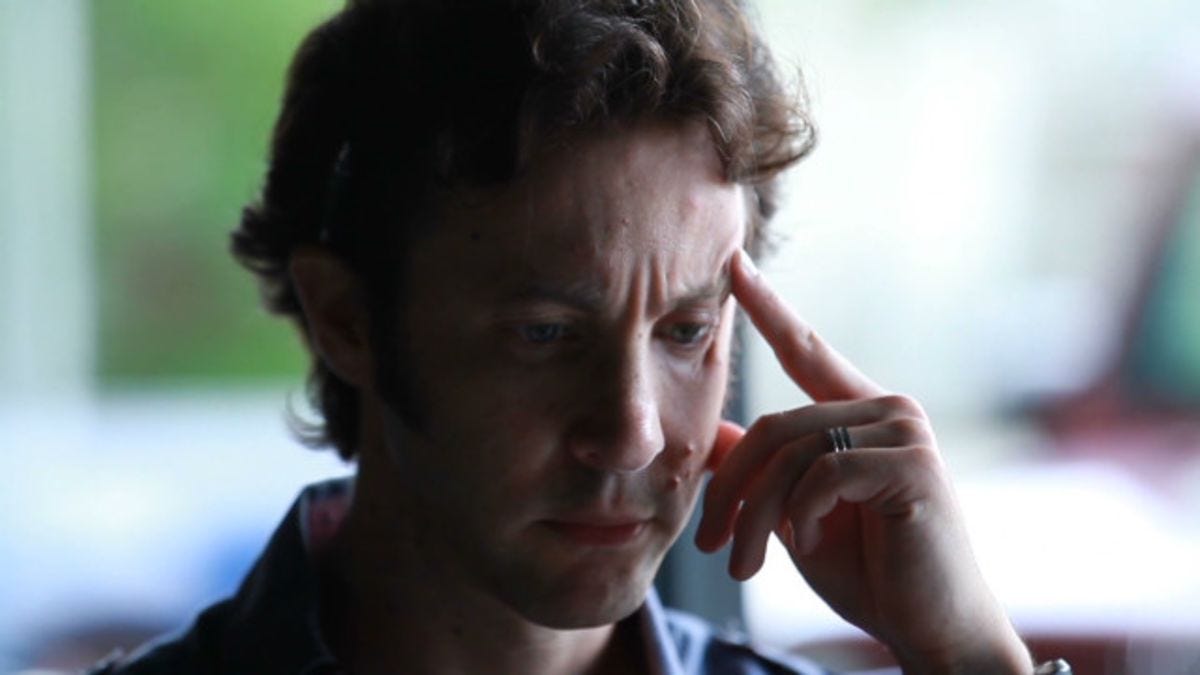
The Neuroscience of the Unprecedented
David Eagleman
I’ve been thinking about this thing that I’m temporarily calling “the neuroscience of the unprecedented.” Because for all of us, in our lifetimes, this was unprecedented. And so the question is: what does that do to our brains? The funny part is it’s never been studied. In fact, I don’t even know if there’s an obvious way to study it in neuroscience. Nonetheless, I’ve been thinking a lot about this issue of our models of the world and how they get upended. And I think one of the things that I have noticed during the quarantine—and everybody I talked to has this feeling—is that it’s impossible to do long-term thinking while everything’s changing. And so I’ve started thinking about Maslow’s hierarchy of needs in terms of the time domain.
Here’s what I mean. If you have a good internal model of what’s happening and you understand how to do everything in the world, then it’s easy enough to think way into the distance. That’s like the top of the hierarchy, the top of the pyramid: everything is taken care of, all your physiologic needs, relationship needs, everything. When you’re at the top, you can think about the big picture: what kind of company you want to start, and why and where that goes, what that means for society and so on. When we’re in a time like this, where people are worried about if I don’t get that next Instacart delivery, I actually don’t have any food left, that kind of thing, it’s very hard to think long-term. When our internal models are our frayed, it’s hard to use those to make predictions about the future.
Watch David Eagleman’s conversation with Tiffany Shlain.
Watch David Eagleman’s conversation with Ping Fu.
The Virus as a Common Enemy and the Pandemic as a Whole Earth Event
Danny Hillis and Ping Fu
Danny Hillis: Do you think this is the first time the world has faced a problem, simultaneously, throughout the whole world?
Ping Fu: Well, how do you compare it to World War II? That was also simultaneous, although it didn’t impact every individual. In terms of something that touches every human being on Earth, this may be the first time.
Danny Hillis: Yeah. And also, we all are facing the same problem, whereas during wars, people face each other. They’re each other’s problem.
Ping Fu: I am worried we are making this virus an imaginary war.
Danny Hillis: Yes, I think that’s a problem. On the other hand, we are making it that, or at least our politicians are. But I don’t think people feel that they’re against other people. In fact, I think people realize, much like when they saw that picture of the whole earth, that there’s a lot of other people that are in the same boat they are.
Ping Fu: Well, I’m not saying that this particular imaginary war is necessarily negative, because in history we always see that when there is a common enemy, people get together, right? This feels like the first time the entire earth identified a common enemy, even though viruses have existed forever. We live with viruses all the time, but there was not a political social togetherness in identifying one virus as a common enemy of our humanity.
Danny Hillis: Does that permanently change us, because we all realize we’re facing a common enemy? I think we’ve had a common enemy before, but I don’t think it’s happened quickly enough, or people were aware of that enough. Certainly, one can imagine that global warming might have done that, but it happens so slowly. But this causes a lot of people to realize they’re in it together in real time, in a way, that I don’t think we’ve ever been before.
Ping Fu: When you talk about global warming, or clean air, clean water, it’s also a common enemy. It’s just more long term, so it’s not as urgent. And this one is now. That is making people react to it. But I’m hoping this will make us realize there are many other common enemies to the survival of humanity, so that we will deal with them in a more coherent or collaborative way.
Watch Ping Fu’s conversation with David Eagleman.
Watch Ping Fu’s conversation with Danny Hillis.
Watch Danny Hillis’ conversation with Geoffrey West.

An Opportunity for New Relationships and New Allies
Katherine Fulton
One of the things that fascinates me about this moment is that most big openings in history were not about one thing, they were about the way multiple things came together at the same time in surprising ways. And one of the things that happens at these moments is that it’s possible to think about new relationships and new allies.
For instance, a lot of small business people in this country are going to go out of business. And they’re going to be open to thinking about their future and what they do in the next business they start and who is their ally. In ways that don’t fit into any old ideological boxes I would guess.
When I look ahead at what these new institutions might be, I think they’re going to be hybrids. They’re going to bring people together to look at the cross-issue sectors or cross-business and nonprofit and cross-country. It’s going to bring people together in relationship that never would have been in relationship because you’ll need these new capabilities in different ways.
You often have a lot of social movement people who are very suspicious of business and historically very suspicious of technology — not so much now. So how might there be completely new partnerships? How might the tech companies, who are going to be massively empowered, the big tech companies by this, how might they invest in new kinds of partnerships and be much more enlightened in terms of creating the conditions in which their businesses will need to succeed?
So it seems to me we need a different kind of global institution than the ones that were invented after World War II.
Watch Katherine Fulton’s conversation with Ramez Naam.
Watch Katherine Fulton’s conversation with Kevin Kelly.

The Loss of Consensus around Truth
Kevin Kelly
We’re in a moment of transition, accelerated by this virus, where we’ve gone from trusting in authorities to this postmodern world we have to assemble truth. This has put us in a position where all of us, myself included, have difficulty in figuring out, like, “Okay, there’s all these experts claiming expertise even among doctors, and there’s a little bit of contradictory information right now.”
Science works well at getting a consensus when you have time to check each other, to have peer review, to go through publications, to take the doubts and to retest. But it takes a lot of time. And in this fast-moving era where this virus isn’t waiting, we don’t have the luxury of having that scientific consensus. So we are having to turn, it’s like, “Well this guy thinks this, this person thinks this, she thinks that. I don’t know.”
We’re moving so fast that we’re moving ahead of the speed of science, even though science is itself accelerating. That results in this moment where we don’t know who to trust. Most of what everybody knows is true. But sometimes it isn’t. So we have a procedure to figure that out with what’s called science where we can have a consensus over time and then we agree. But if we are moving so fast and we have AI come in and we have viruses happening at this global scale, which speeds things up, then we’re outstripping our ability to know things. I think that may be with us longer than just this virus time.
We are figuring out a new way to know, and in what knowledge we can trust. Young people have to understand in a certain sense that they have to assemble what they believe in themselves; they can’t just inherit that from an authority. You actually have to have critical thinking skills, you actually have to understand that for every expert there’s an anti-expert over here and you have to work at trying to figure out which one you’re going to believe. I think, as a society, we are engaged in this process of coming up with an evolution in how we know things and where to place our trust. Maybe we can make some institutions and devices and technologies and social etiquettes and social norms to help us in this new environment of assembling truth.
Watch Kevin Kelly’s conversation with Katherine Fulton.
Watch Kevin Kelly’s conversation with Paul Saffo.
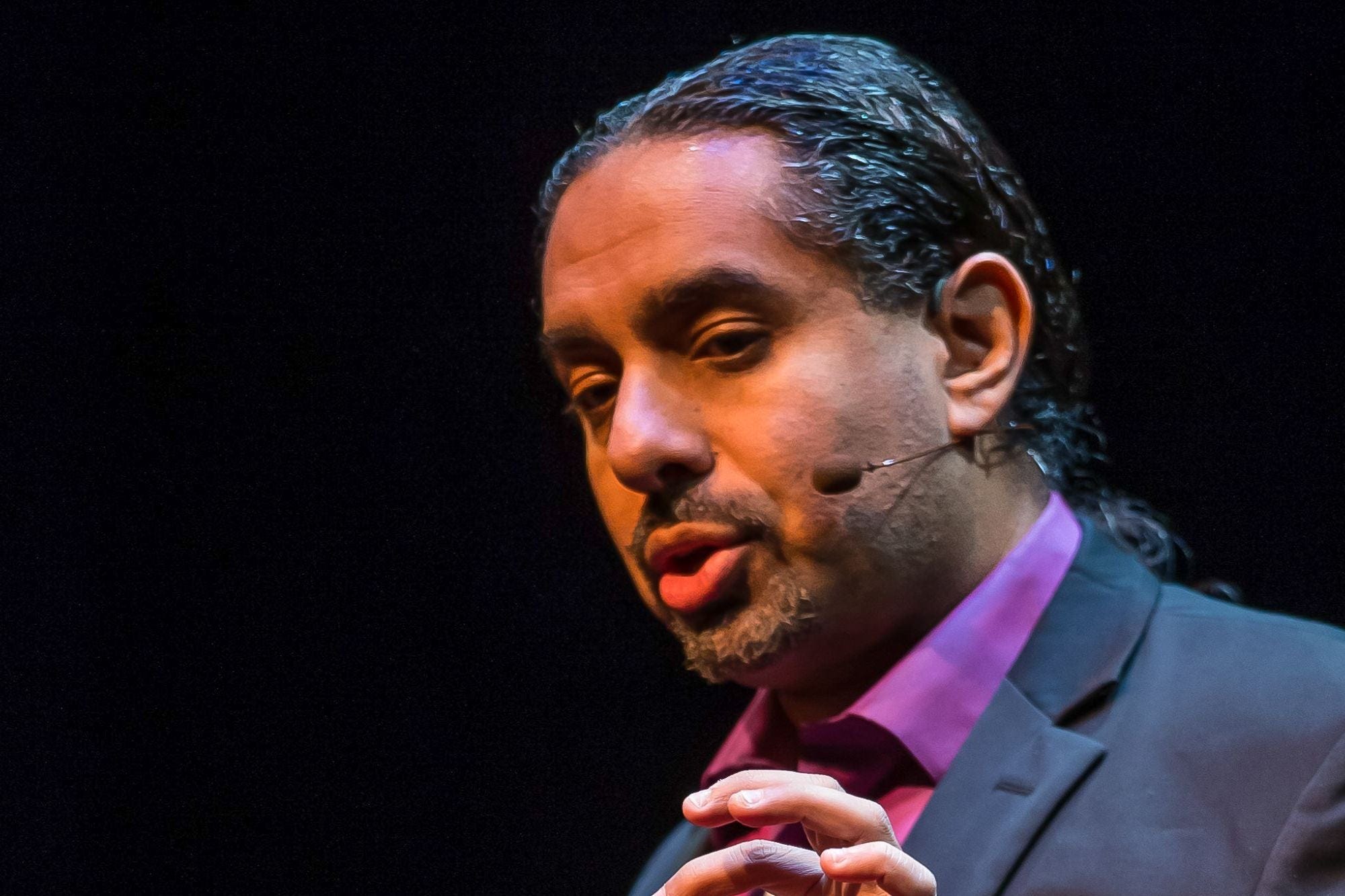
The Pandemic Won’t Help Us Solve Climate Change
Ramez Naam
There’s been a lot of conversations, op-eds, and Twitter threads about what coronavirus teaches us about climate change. And that it’s an example of the type of thinking that we need.
I’m not so optimistic. I still think we’re going to make enormous headway against climate change. We’re not on path for two degrees Celsius but I don’t think we’re on path for the four or six degrees Celsius you sometimes hear talked about. When I look at it, coronavirus is actually a much easier challenge for people to conceptualize. And I think of humans as hyperbolic discounters. We care far more about the very near term than we do about the long-term. And we discount that future at a very, very steep rate.
And so even with coronavirus — well, first the coronavirus got us these incredible carbon emissions and especially air quality changes. You see these pictures of New Delhi in India before and after, like a year ago versus this week. And it’s just brown haze and crystal clear blue skies, it’s just amazing.
But it’s my belief that when the restrictions are lifted, people are going to get back in their cars. And we still have billions of people that barely have access to electricity, to transportation to meet all their needs and so on. And so that tells me something: that even though we clearly can see the benefit of this, nevertheless people are going to make choices that optimize for their convenience, their whatnot, that have this effect on climate.
And that in turn tells me something else, which is: in the environmentalist movement, there’s a couple of different trains of thought of how we address climate change. And on the more far left of the deep green is the notion of de-growth, limiting economic growth, even reducing the size of the economy. And I think what we’re going to see after coronavirus will make it clear that that’s just not going to happen. That people are barely willing to be in lockdown for something that could kill them a couple of weeks from now. They’re going to be even less willing to do that for something that they perceive as a multi-decade threat.
And so the solution still has to be that we make clean choices, clean electricity, clean transportation, and clean industry, cheaper and better than the old dirty ones. That’s the way that we win. And that’s a hard story to tell people to some extent. But it is an area where we’re making progress.
Watch Ramez Naam’s conversation with Esther Dyson.
Watch Ramez Naam’s conversation with Katherine Fulton.

The Lessons of Long-Lived Organizations
Alexander Rose
Any organization that has lasted for centuries has lived through multiple events like this. Any business that’s been around for just exactly 102 years, lived through the last one of these pandemics that was much more vast, much less understood, came through with much less communication.
I’m talking right now to heads of companies that have been around for several hundred years and in some cases—some of the better-run family ones and some of the corporate ones that have good records—and they’re pulling from those times. But even more important than pulling the exact strategic things that helped them survive those times, they’re able to tell the story that they survived to their own corporate or organizational culture, which is really powerful. It’s a different narrative than what you hear from our government and others who are largely trying in a way to get out from under the gun of saying this was a predictable event even though it was. They’re trying to say that this was a complete black swan, that we couldn’t have known it was going to happen.
There’s two problems with that. One, it discounts all of this previous prediction work and planning work that in some cases has been heeded by some cultures and some cases not. But I think more importantly, it gets people out of this narrative that we have survived, that we can survive, that things are going to come back to normal, that they can come back so far to normal that we are actually going to be bad at planning for the next one in a hundred years if we don’t put in new safeguards.
And I think it’s crucial to get that narrative back in to the story that we do survive these things. Things do go back to normal. We’re watching movies right now on Netflix where you watch people touch, and interact, and it just seems alien. But I think we will forget it quicker than we adopted it.
Watch Alexander Rose’s conversation with Bina Venkataraman.
Watch Alexander Rose’s conversation with Stewart Brand.

How Do We Inoculate Against Human Folly?
Paul Saffo
I think, in general, yes, we’ve got to work more on long-term thinking. But the failure with this pandemic was not long-term thinking at all. The failure was action.
I think long-term thinking will become more common. The question is can we take that and turn it to action, and can we get the combination of the long-term look ahead, but also the fine grain of understanding when something really is about to change?
I think that this recent event is a demonstration that the whole futurist field has fundamentally failed. All those forecasts had no consequence. All it took was the unharmonic convergence of some short sighted politicians who had their throat around policy to completely unwind all the foresight and all the preparation. So thinking about what’s different in 50 or 100 or 500 years, I think that the fundamental challenge is how do we inoculate civilization against human folly?
This is the first of pandemics to come, and I think despite the horror that has happened, despite the tragic loss of life, that we’re going to look at this pandemic the way we looked at the ’89 earthquake in San Francisco, and recognize that it was a pretty big one. It wasn’t the big one in terms of virus lethality, it’s more a political pandemic in terms of the idiotic response. The highest thing that could come out of this is if we finally take public health seriously.
Watch Paul Saffo’s conversation with Kevin Kelly.
Watch Paul Saffo’s conversation with Tiffany Shlain.

How to Convince Those in Positions of Power to Trust Scenario Planning
Peter Schwartz
Look, I was a consultant in scenario planning, and I can tell you that it was never a way to get more business to tell a CEO, “Listen, I gave you the scenarios and you didn’t listen.”
My job was to make them listen. To find ways to engage them in such a way that they took it seriously. If they didn’t, it was my failure. Central to the process of thinking about the future like that is finding out how you engage the mind of the decision maker. Good scenario planning begins with a deep understanding of the people who actually have to use the scenarios. If you don’t understand that, you’re not going to have any impact.
[The way to make Trump take this pandemic more seriously would’ve been] to make him a hero early. That is, find a way to tell the story in such a way that Donald Trump in January, as you’re actually warning him, can be a hero to the American people, because of course that is what he wants in every interaction, right? This is a narcissist, so how do you make him be a leader in his narcissism from day one?
The honest truth is that that was part of the strategy with some CEOs that I’ve worked with in the past. I think Donald Trump is an easy person to understand in that respect; he’s very visible. The problem was that he couldn’t see any scenario in which he was a winner, and so he had to deny. You have to give him a route out, a route where he can win, and that’s what I think the folks around him didn’t give him.
Watch Peter Schwartz’s conversation with Bina Venkataraman.
Watch Peter Schwartz’s conversation with Esther Dyson.

The Power of Unplugging During the Pandemic
Tiffany Shlain
We’ve been doing this tech shabbat for 10 years now, unplugging on Friday night and having a day off the network. People ask me: “Can you unplug during the pandemic?” Not only can I, but it has been so important for Ken and I and the girls at a moment when there’s such a blur about time. We know all the news out there, we just need to stay inside and have a day to be together without the screens and actually reflect, which is what the Long Now is all about.
I have found these Tech Shabbats a thousand times more valuable for my health because I’m sleeping so well on Friday night. I just feel like I get perspective, which I think I’m losing during the week because it’s so much coming at me all the time. I think this concept of a day of rest has lasted for 3000 years for a reason. And what does that mean today and what does that mean in a pandemic? It means that you go off the screens and be with your family in an authentic way, be with yourself in an authentic way if you’re not married or with kids. Just take a moment to process. There’s a lot going on and it would be a missed opportunity if we don’t put our pen to paper, and I literally mean paper, to write down some of our thoughts right now in a different way. It’s so good to put your mind in a different way.
The reason I started doing Tech Shabbats in the first place is that I lost my father to brain cancer and Ken’s and my daughter was born within days. And it was one of those moments where I felt like life was grabbing me by the shoulders and saying, “Focus on what’s important.” And that series of dramatic events made me change the way I lived. And I feel like this moment that we’re in is the earth and life grabbing us all by the shoulders and saying, “Focus on what’s important. Look at the way you’re living.” And so I’m hopeful that this very intense, painful experience gets us thinking about how to live differently, about what’s important, about what matters. I’m hopeful that real behavioral change can come out of this very dramatic moment we’re in.
Watch Tiffany Shlain’s conversation with Paul Saffo.
Watch Tiffany Shlain’s conversation with David Eagleman.
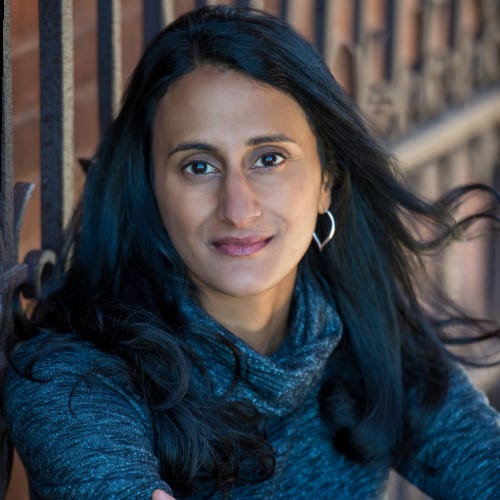
We Need a Longer Historical Memory
Bina Venkataraman
We see this pattern—it doesn’t even have to be over generations—that when a natural disaster happens in an area, an earthquake or a flood, we see spikes in people going out and buying insurance right after those events, when they’re still salient in people’s memory, when they’re afraid of those events happening again. But as the historical memory fades, as time goes on, people don’t buy that insurance. They forget these disasters.
I think historical memory is just one component of a larger gap between prediction and action, and what is missing in that gap is imagination. Historical memory is one way to revive the imagination about what’s possible. But I also think it’s beyond that, because with some of the events and threats that are predicted, they might not have perfect analogs in history. I think about climate change as one of those areas where we’ve just never actually had a historical event or anything that even approximates it in human experience, and so cognitively it’s really difficult for people, whether it’s everyday people in our lives or leaders, to be able to take those threats or opportunities seriously.
People think about the moon landing as this incredible feat of engineering, and of course it was, but before it was a feat of engineering, it was a feat of imagination. To accomplish something that’s unprecedented in human experience takes leaps of imagination, and they can come from different sources, from either the source of competition, from the knowledge of history, and indeed from technology, from story, from myth.
Watch Bina Venkataraman’s conversation with Alexander Rose.
Watch Bina Venkataraman’s conversation with Peter Schwartz.
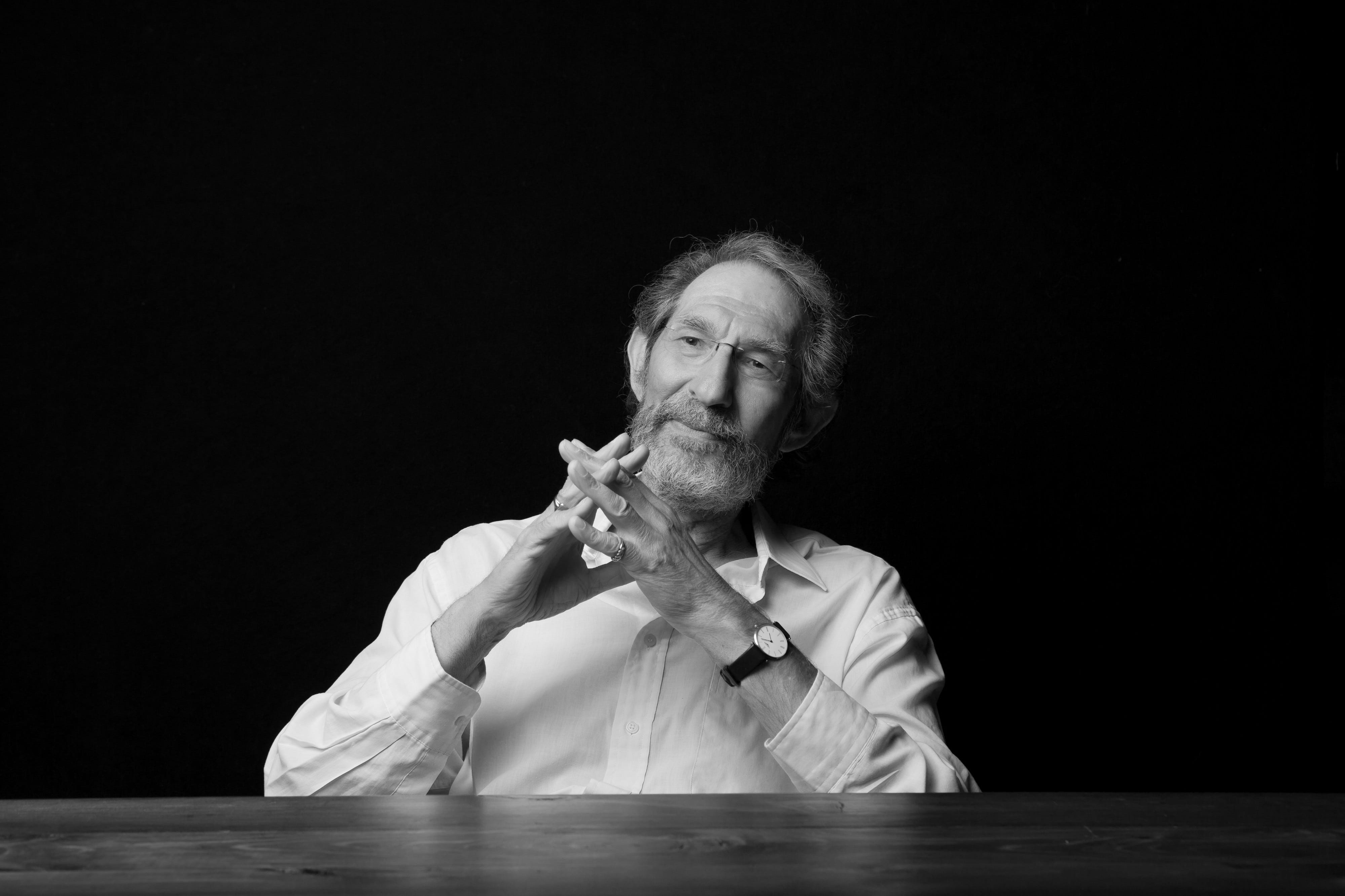
The Pandemic is a Red Light for Future Planetary Threats
Geoffrey West
If you get sick as an individual, you take time off. You go to bed. You may end up in hospital, and so forth. And then hopefully you recover in a week, or two weeks, a few days. And of course, you have built into your life a kind of capacity, a reserve, that even though you’ve shut down — you’re not working, you’re not really thinking, probably — nevertheless you have that reserve. And then you recover, and there’s been sufficient reserve of energy, metabolism, finances, that it doesn’t affect you. Even if it is potentially a longer illness.
I’ve been trying to think of that as a metaphor for what’s happening to the planet. And of course what you realize is that how little we actually have in reserve, that it didn’t take very much in terms of us as a globe, as a planet going to bed for a few days, a few weeks, a couple months that we quickly ran out of our resources.
And some of the struggle is to try to come to terms with that, and to reestablish ourselves. And part of the reason for that, is of course that we are, as individuals, in a sort of meta stable state, whereas the planet is, even on these very short timescales, continually changing and evolving. And we live at a time where the socioeconomic forces are themselves exponentially expanding. And this is what causes the problem for us, the acceleration of time and the continual pressures that are part of the fabric of society.
We’re in a much more strong position than we would have been 100 years ago during the Flu Epidemic of 01918. I’m confident that we’re going to get through this and reestablish ourselves. But I see it as a red light that’s going on. A little rehearsal for some of the bigger questions that we’re going to have to face in terms of threats for the planet.
Watch Geoffrey West’s conversation with Danny Hillis.
Watch Geoffrey West’s conversation with Stewart Brand.
Footnotes
[1] Long Conversation is a relay conversation of 20 minute one-to-one conversations; each speaker has an un-scripted conversation with the speaker before them, and then speaks with the next participant before they themselves rotate off. This relay conversation format was first presented under the auspices of Artangel in London at a Longplayer performance in 02009.

